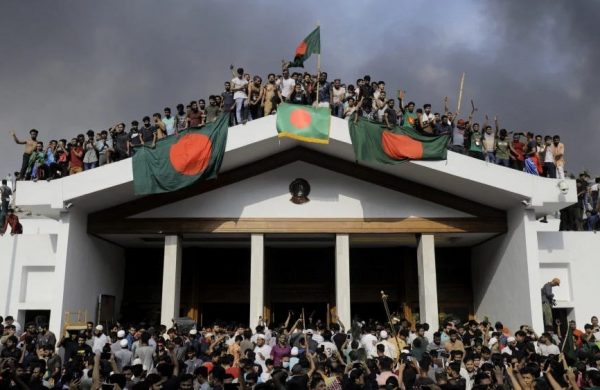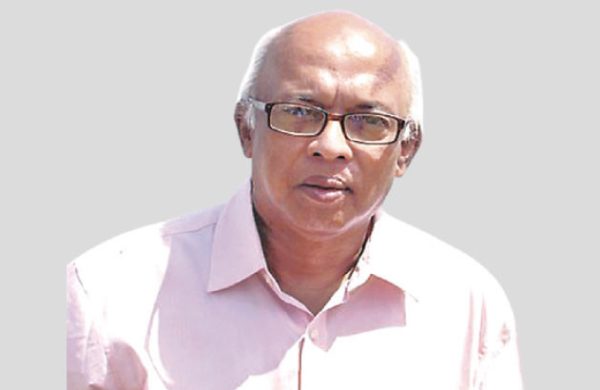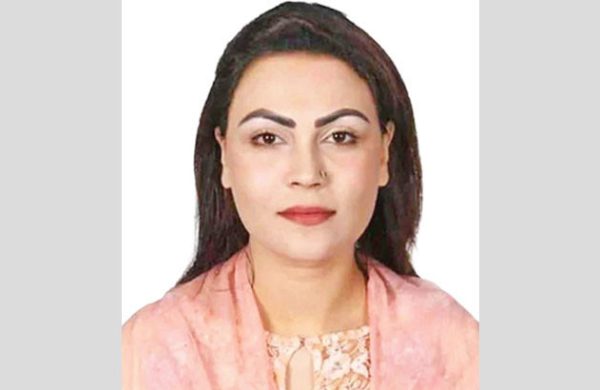Restoring justice in post-dictatorship Bangladesh
- Update Time : Friday, September 20, 2024

–Asadullah Al Mahmud–
In the aftermath of Bangladesh’s 15-years dictatorship, the country finds itself grappling with the complexities of transitioning from autocratic rule to a democratic and just society. The fall of the regime, brought about by the July Revolution, marked the end of a dark chapter in the nation’s history, where corruption, political oppression, and a lack of accountability reigned supreme. While the ousting of the dictatorship offers hope, the road to recovery is fraught with immense challenges. The immediate task at hand is to address the breakdown of law and order, restore the rule of law, and rebuild public trust in the country’s institutions.
The dictatorship that gripped Bangladesh for one and a half decades left behind a legacy of lawlessness and impunity. Under this regime, law enforcement agencies were not instruments of justice but enforcers of one-party rule. The judiciary, media, and other critical institutions were compromised, and professionalism was systematically destroyed. Corruption ran rampant, and opposition voices were silenced through intimidation, lawsuits, and outright violence.
With the collapse of this regime, Bangladesh is faced with the urgent task of rebuilding its institutions. One of the most pressing concerns is the rise of mob justice, which has emerged as a troubling symptom of the power vacuum left by the fall of the dictatorship. In the absence of functional legal institutions, citizens have resorted to taking justice into their own hands. Incidents of vigilante violence have become alarmingly common.
Mob justice is not only a threat to the lives of individuals but also to the very fabric of society. When people lose faith in the legal system, they turn to extreme measures, which can lead to a cycle of violence and instability. The recent killing of a Dhaka University student, accused of theft, is a grim reminder of the dangers of allowing mob justice to take root. Without swift intervention, these incidents will become more frequent, further undermining the country’s efforts to establish a functioning legal framework.
To combat this growing threat, it is essential to focus on restoring the rule of law. This begins with rebuilding the professionalism and integrity of law enforcement agencies. Police officers and other law enforcement officials must be retrained and held to high ethical standards, free from political influence. Efforts must also be made to depoliticise the judiciary and ensure that it operates as an independent body upholding the principles of justice and fairness. This process will not be easy, but it is critical to restoring public confidence in the legal system.
Reform must also extend to the judicial system weakened under the autocratic regime. To achieve true justice, an independent and impartial judiciary is necessary to process cases fairly, especially for crimes committed during the dictatorship. This can be achieved through the establishment of truth and reconciliation commissions or independent tribunals. Without addressing these past crimes, the country’s transition to democracy will remain incomplete, and the culture of impunity may persist.
Public awareness and education are equally important in this transition. Years of media suppression and state propaganda have left many citizens misinformed about their rights and the importance of due process. A nationwide campaign is needed to raise awareness about the dangers of mob justice and the importance of legal recourse. This includes promoting trust in the justice system. Empowering a free and independent media will be essential in this effort.
Addressing the socio-economic issues is another crucial step in stabilising the country. Poverty, unemployment, and economic instability often drive people toward violence and lawlessness. When individuals feel that they have no access to justice or economic opportunities, they are more likely to engage in or support extrajudicial actions. The government must prioritise economic reforms that provide jobs and stability for the most vulnerable segments of society.
In addition to domestic efforts, international support may be necessary to guide Bangladesh through this transitional period. Many countries that have undergone similar transformations have benefited from external expertise in institution-building, legal reforms, and transitional justice. International organisations can provide resources, training, and technical assistance to help Bangladesh rebuild its institutions in line with democratic principles. Moreover, international observers can offer legitimacy to the country’s efforts.
Despite the challenges, there is hope for Bangladesh’s future. The fall of the dictatorship has opened up new possibilities for building a more just and equitable society. However, this potential can only be realised if the country addresses the root causes of lawlessness and works toward creating a strong, independent legal system. This process will require the dedication of government officials, civil society, and the international community. With the right reforms and a commitment to upholding the rule of law, Bangladesh can emerge from this tumultuous period stronger, more unified, and more democratic.
The revolution that toppled the dictatorship may have been the catalyst for change, but the true revolution lies in the reform of Bangladesh’s institutions. By restoring professionalism, justice, and accountability, the country can move forward from the shadow of dictatorship and build a future where the rule of law prevails, and the rights of all citizens are protected. The road ahead is long but with sustained effort, Bangladesh can forge a new path, free from corruption and abuses of the past.



















